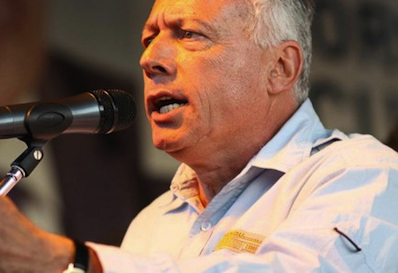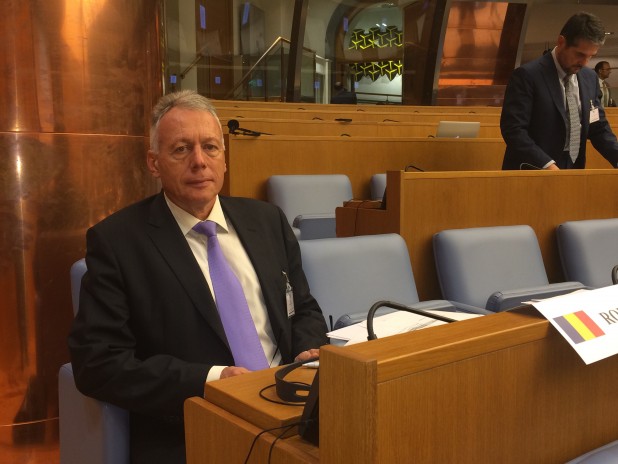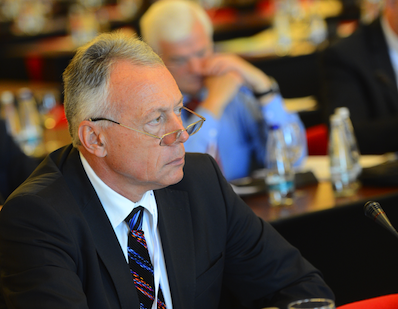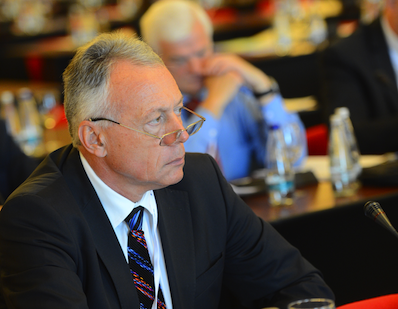“Just and Unjust Wars: A New Approach in a World of Turmoil”
Speech by Mr. Laszlo Borbely, President of the Foreign Policy Committee of the Romanian Chamber of Deputies on March 26, 2014, in Bucharest, on the UN SYSTEM SIMULATION CONFERENCE BISMUN 2014 organised by UN YOUTH – Romania
"Dear UN Youth,
Ladies and Gentlemen,
The topic of this conference has been the question of just and unjust wars – a very burning topic in international politics these days, indeed.
So, have you reached a verdict?
Is there such thing as a JUST war? Can casualties and the loss of human life ever be justified?
And can – the other way around – human rights abuses or genocide committed by another state be tolerated passively?
The debate on war ethics is as old as mankind itself and there will probably be no end to it as long as mankind exists. All great civilizations have brought their contribution to the justification of the reasons, the goals and the decisions to go to war, as well as on the method of “just” warfare. And the debate goes on today from the annexation of the Crimea to the question of military drones, from interventionism to the right of self determination.
However, leaving theoretical controversy and taking a pragmatic approach, I think we might dare admit what the experience of communism has bitterly shown us in Eastern Europe, namely that human nature is not 100% good, nor by definition, nor in practice. Thus, we can predict that there will always be abuses and abusers of power who must be contained in order for the many to live in freedom.
And continuing on the pragmatic note – what do you think? If you ask somebody in North Korea or a Syrian refugee or two decades ago a Tutsi in Rwanda whether military intervention may be desirable to prevent genocide or human rights abuses, would the answer have been yes? Probably yes...
So, not to sacrifice human life in order to allow somebody else sacrifice human life is not the solution, is it?
But is then sacrificing human life in order to stop sacrifice the solution? Does it merely come down to a comparison of numbers? How many lives lost for how many saved?
No, that can’t be the solution. Or at least not the default solution. A last resort option maybe.
The solution is to find a mechanism to prevent abuse, so that no sacrifice is needed.
And as we know from history that no order can be upheld – as liberal, democratic or advanced it might be - without a force defending it, we are bound to admit the necessity of such “force”. Again, however, for this “force” not to get out of control, an institutional mechanism with multiple democratic leverages is needed to balance the system and reduce the chances of abuse.
But the good news is that such mechanisms already exist and work in some countries of the world at national level! We call them nothing else than democracy. Do democracies have internal forces to protect them? Yes. On one hand there is the institutional system granting the people the power and on the other hand, there is the police to protect the people –itself controlled by the people.
This is a functional model. I am a pragmatic person and I like to search for solutions that do work in every-day life. So, in order to have the luxury to avoid debates on just or unjust wars, or on the right of military intervention and the method of warfare, I think that mankind’s goal needs to be the creation of a global free society working according to the principles of democracy, individual liberty and the rule of law. And yes, it should have a force protecting it, a kind of “police”, controlled by the will of the people and serving the good and the freedom of the people.
This is why I consider the reform of the UN system towards a functional global framework of paramount importance. This is why I believe in the human rights assessment mechanisms of the UN Human Rights Council. This is why I believe in conflict resolution and prevention via multilateral cooperation in all fields.
And this is why I consider that the UN peacekeeping mechanism under the Security Council should be developed and strengthened.
This is also why I consider the type of exercises you have been through in the past days imperative for the development of a new, a better world order.
You are the generation that needs to take our aspirations for democracy to a global level in a globalised world. There is no other way. We are many and there is just one planet with limited resources for us to live on and to share.
So bear this in mind as you go on in your national or international careers, but for now, allow me to congratulate you for having come this far, for taking mankind’s fate so seriously as to participate at this conference in your search for viable solutions and good practices for the future.
Just one more piece of advice, or more like a pledge from my side:
Ladies and gentlemen, dare take our fate in your hands, exercise democracy at global level and make this world a better place! God bless you in your endeavor!"



